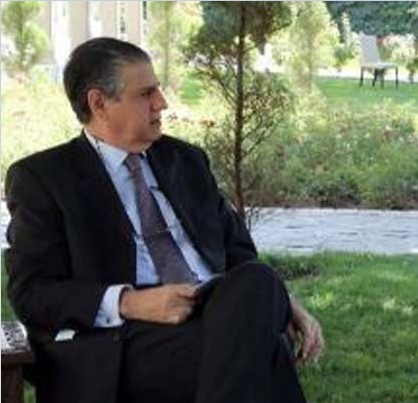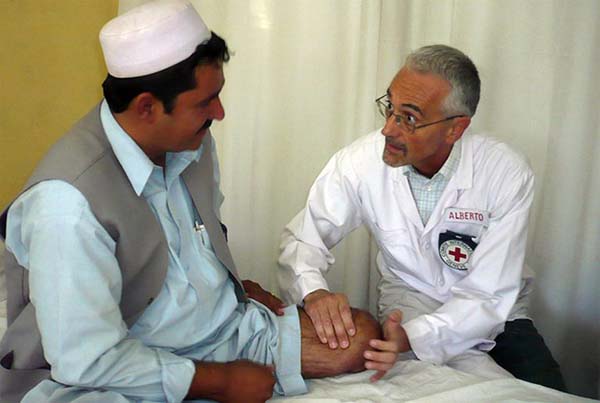
Ambassador Stefano Pontecorvo appreciates physiotherapist Alberto Cairo
Newswire
Rome: Senior Italian diplomat Ambassador Stefano Pontecorvo this week appreciated physiotherapist Alberto Cairo for dedicating his life for the Afghans in need.
“Truly a great man,” he tweeted replying to a post in which Alberto Cairo is seen at work with Afghan victims of conflict.
Though Cairo himself has been the subject of many media reports, he would rather have the attention focused on the seven orthopaedic centres he runs, the 750 staff working in those centres – nearly all of whom are former patients with disabilities of their own – and the thousands of patients they have helped over the years.

In his early years in Afghanistan, as one conflict led to another, Cairo was struck by the sheer number of patients seeking treatment for landmine, bullet, and shrapnel wounds. Each year, the rehabilitation centres he runs treat more than 13,000 new patients – the vast majority of whom, require lifetime treatment.
“My final goal for each patient is to be reintegrated into society and for them to live with dignity,” said Cairo while waiting to begin his daily rounds in the West Kabul rehabilitation centre, where many of his patients have been displaced by ongoing conflict and insecurity in the South-Central Asian nation.
For his work dedicated to empowering Afghans with disabilities, Cairo has been chosen as the regional winner for Asia of the UNHCR Nansen Refugee Award, a prestigious annual prize that honours those who go to extraordinary lengths to support refugees and displaced people.
The overall winner of the award will be announced on October 2 and it will be presented by UNHCR, the UN Refugee Agency, at a ceremony in Geneva, Switzerland, on October 7.
For Cairo, a career in physical rehabilitation came by chance. “I was a teenager in Italy when I saw a man doing something that seemed so simple and so helpful: helping people to walk.”
That moment made such a strong impression that he eventually left his training as a lawyer behind to pursue physiotherapy.
Prior to arriving in Kabul, Cairo spent three years working in the area that is now part of the nation of South Sudan, itself roiled by years of endless conflict.
When he began his practice in Kabul, the ICRC’s treatment centre was devoted solely to war victims, but he eventually expanded the mandate to include all people with disabilities in the country.
It is estimated that anywhere between 400,000 and 655,000 Afghans suffer from some form of disability. With the Afghan Government’s limited budget, including health care, largely reliant on foreign aid – which has dwindled in recent years – Cairo is constantly looking for new ways to serve a population that frequently faces social discrimination.
